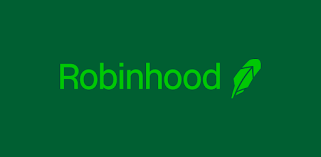Robinhood Reports Q2 Results
Cryptocurrency trading drives revenue growth
Robinhood reported its second quarter results yesterday (Wednesday 8.18), three weeks after going public. Total revenues increased 131% from the prior-year quarter, to $565mm. The Company reported a pre-tax loss of $464mm, after booking another $528mm of mark-to-market expense associated with the Company’s convertible note offering in January. The HOOD share price increased 7% during the trading day Wednesday, prior to the earnings release, but has given back all of its gain and a bit more in early trading today. As I write, the HOOD shares are trading at $45.60, well off from recent highs but still about 20% above its $38 IPO price. At the current share price, Robinhood has a market cap of roughly $38bn.
You will recall from my prior post that Robinhood’s revenues are primarily transaction based and consist mostly of payment for order flow (PFOF). Robinhood customers do not themselves pay trading commissions, but the Company receives payments from third party firms for routing its customer transactions through them. Transaction-based revenues in the second quarter were $451mm, a year-on-year increase of 141%. Approximately 85% of the increase in transaction revenues was attributable to increased trading in cryptocurrencies, with Dogecoin alone accounting for two-thirds of the crypto activity. Transaction revenues from options increased 48% but equity revenues fell 26%.
Year on year, Robinhood’s customer base increased 130%, in line with total revenue growth, to 22.5mm (net funded accounts). Average revenue per user (ARPU) fell slightly, from $115 to $112. Assets under custody (AUC) increased to $102bn, up from $33bn a year ago.
Looking forward, Robinhood has signaled an expected decline in new customer growth and trading activity attributable to “seasonal headwinds” in the third quarter (typically a slow season). Future earnings will be negatively impacted by continued investment in technology and operations. as well as over $3bn of deferred share based compensation expense, $1bn of which will be booked in Q3. (Share based compensation expense is a non-cash charge, but it effectively dilutes the ownership interest of stockholders.)
Robinhood’s Q2 balance sheet records a liability of $5.2bn associated with the January convertible note offerings, which includes $2bn of mark-to-market liability increases booked in the first two quarters of 2021. The Company records as a P&L expense changes in the value of the convertible notes (and associated warrants) attributable to changes in the value of the underlying common shares, now trading at a price of $45.60. (I am not sure what share price was assumed as of June 30th for purposes of valuing the converts.) You will recall that the conversion price on these notes was set at a 30% discount to the IPO price of $38, or $26.60.
In early August, Robinhood filed with the SEC on behalf of certain investors a registration statement for the public offering of up to 95mm common shares underlying the first tranche of convertible notes. At the current market price, this is over $4bn of stock; by comparison Robinhood sold in its IPO a total of 55mm shares for just over $2bn. You will recall that this secondary share placement was initially announced just six days after the IPO, a rather shocking development at the time, and caused the HOOD share price to fall 25% in one day. As of August 13, the registration statement for this offering was still under review by the SEC. The Company said in its press release that it cannot predict when the registration statement may go effective, after which point the registered shares may be sold publicly. I have no idea when and how these shares will eventually be sold, or what will be the impact on the HOOD share price.
No doubt there are many interesting things to note in Robinhood’s second quarter results, but at the top of the list must certainly be the magnitude of customer trading in cryptocurrencies and Dogecoin in particular. As noted above, 85% of the increase in transaction revenues during the second quarter was attributable to trading in cryptocurrencies, primarily Dogecoin. I don’t have any idea what this means for the future of Robinhood, but on a lighter note it does bring to mind the recent performance of the “Dogefather” Elon Musk on Saturday Night Live. If you haven’t yet seen the clip, you can view it here.
Links:
Robinhood Revenue Surges on Cryptocurrency Trades, WSJ 8.18.2021

